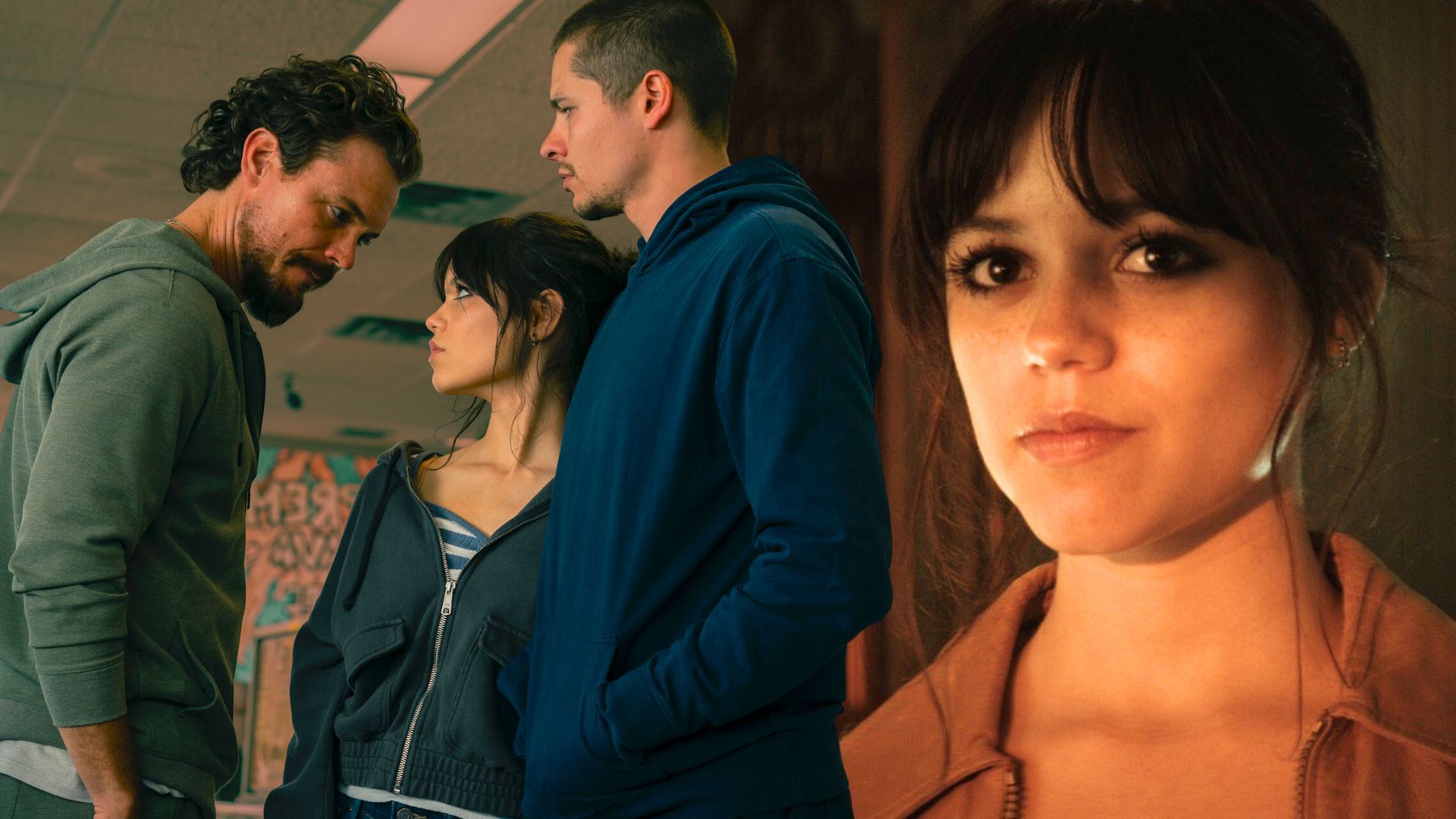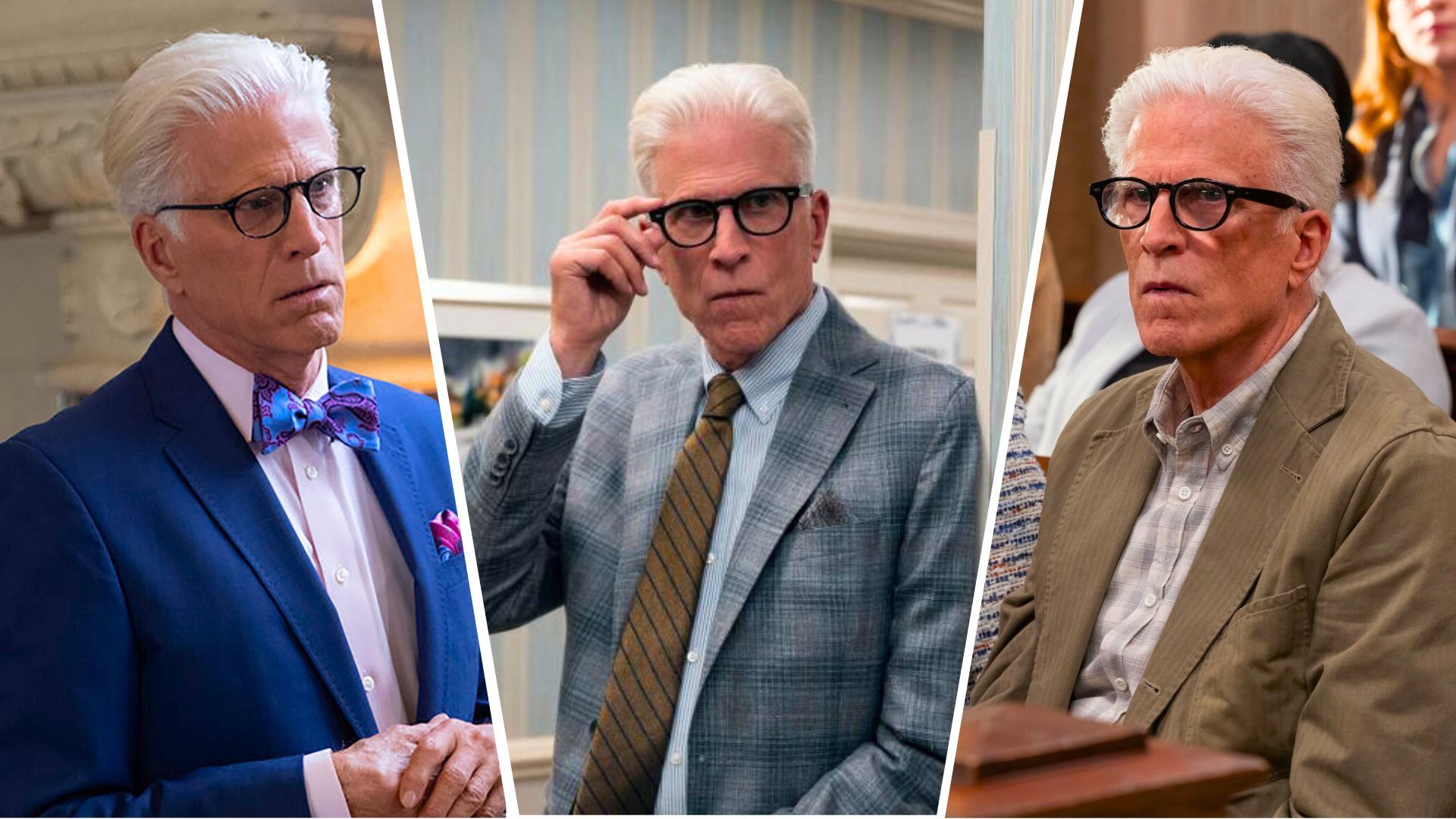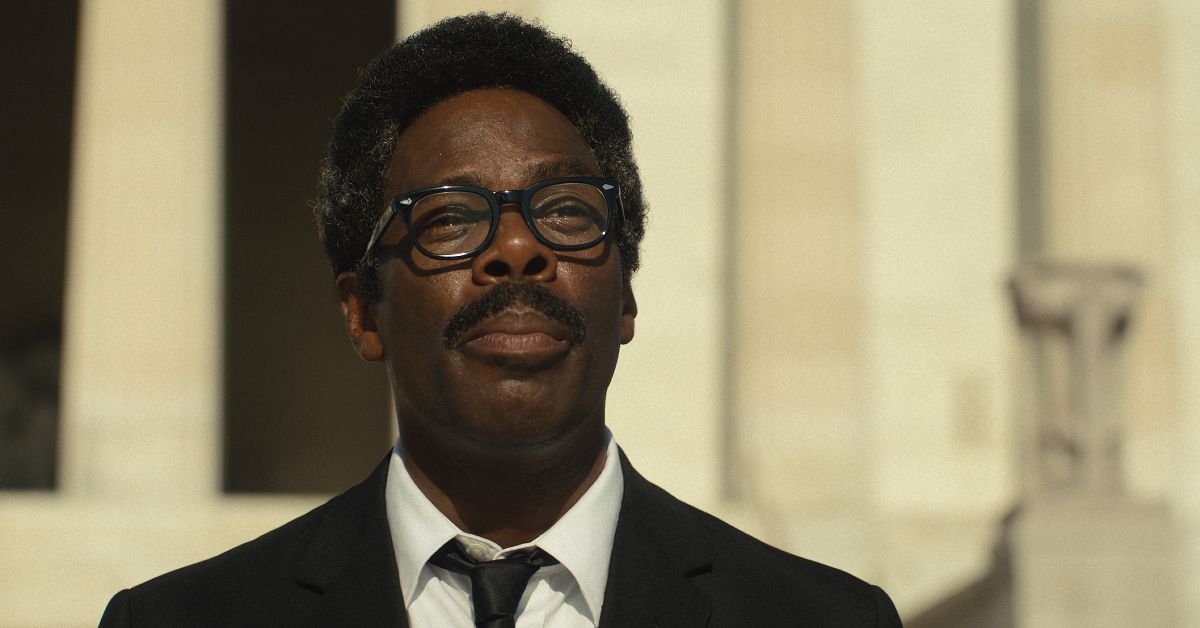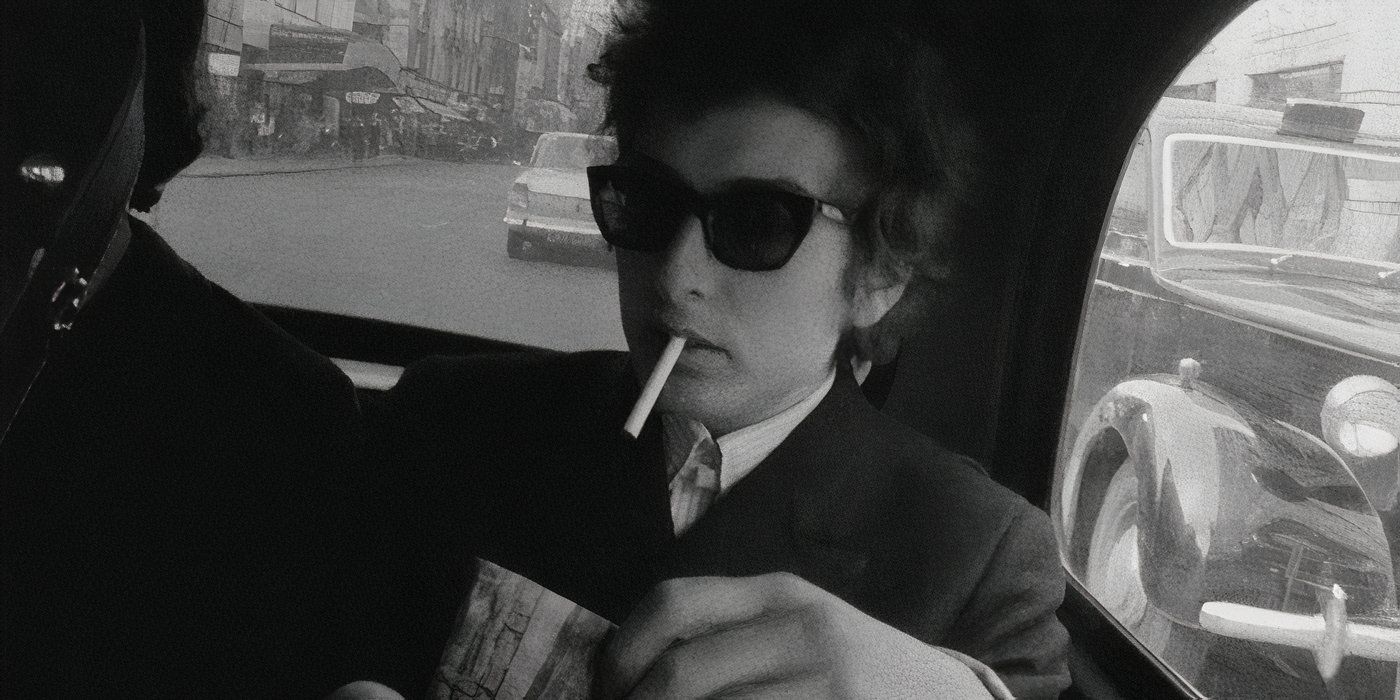If you decide to research the life of civil rights activist Bayard Rustin, you’ll find an intimidating mass of events and achievements. The newest biographical drama to come from Netflix, Rustin, covers what is probably considered his most famous contribution to American society — the March on Washington in 1963. Directed by George C. Wolfe and starring Colman Domingo, the film aims to shed light on an often overlooked (but vital) member of the civil rights movement. This is clear even from the titular character’s introduction, where he literally steps out of the shadows in order to encourage a reluctant Martin Luther King Jr. to stage a protest at the upcoming Democratic National Convention in 1960.
An Intersectional Approach to Representing Rustin
Release Date November 17, 2023
Director George C. Wolfe
Cast Colman Domingo, Chris Rock, Glynn Turman, Aml Ameen, CCH Pounder, Jeffrey Wright
Rating PG-13
Runtime 1hr 46min
Main Genre Biography
Rustin sets the stage for the audience with clear, powerful imagery. Famous shots of the first Black students attending formerly all-white schools are recreated, painting a picture of the kind of world the characters live in. Rustin, after assisting Martin Luther King Jr. in reaching his position, is confident that the controversies surrounding him will not come back to bite him. But, unfortunately, that isn’t the case.
Rustin was not only a Black man in a deeply racist country, but he was also openly gay. More than once, the film showcases discrimination against him from all kinds of individuals, even those who should be on his “side.” This intersectional approach that acknowledges both Rustin’s race and sexuality and the different difficulties they bring is the key to what makes the drama so well-rounded. Despite those struggles, Rustin keeps his head and spirits high along with his dignity. Those who know him personally keep him close by, which is how he ends up organizing the famous March on Washington.
With a team of young activists under him, Rustin lays out the plans for what is to become the largest peaceful protest in American history. Similar to how he uplifts Dr. King, Rustin does the same for his team, building ideas and concepts to energize the younger members. Soon enough, they’re picking up phones and heading to bus stations.
Two Powerhouse Central Performances
Netflix
Bayard Rustin’s charm and drive are captured perfectly in Colman Domingo’s phenomenal performance. Rustin’s bravery, gentleness, and wit all fly vividly off the screen. This performance by Domingo is physical and atmospheric, conveying personality traits wordlessly rather than through exposition. As a result, the audience implicitly trusts Rustin’s persuasive abilities, making it easy to understand his influence and how the other characters consistently listen to his propositions.
Related: Colman Domingo Shares Personal Connections with the Real Bayard Rustin
Playing opposite Domingo is Chris Rock as Roy Wilkins, who opposes the initial march and initiates the controversies against Rustin at the beginning of the film. Rock’s complicated performance is admirable. While Wilkins’ stance against the march isn’t exactly revolutionary, the film’s measured approach makes it understandable that he simply fears the potential violence it could bring. Rock’s performance packs an powerful force that rises to Domingo’s when the two are on opposing sides.
Rustin Diligently Brings History to Life
Netflix
The crew behind Rustin conducted extensive research in order to bring the story of Bayard Rustin to life and do justice to his work. Wolfe detailed with MovieWeb how surviving friends and family of Rustin were consulted during the writing process. Elements such as makeup, costumes (designed by Toni-Leslie James), and sets were also meticulously crafted to represent the proper time period, even down to Rustin’s teeth. Also setting the proper time period is the subtle, yet strong, jazz-inspired score composed by the great, Grammy Award-winning Branford Marsalis.
Related: The Best Historical Films You Haven’t Watched (Yet)
The march itself was filmed both on a recreation set in Pittsburgh and on-location in Washington D.C. at the very Lincoln Memorial steps. The march sequence also meticulously splices in archival footage of the real-life march, which matches up impeccably with the studio footage. This isn’t Wolfe’s first attempt at a historical drama (most recently, he helmed Ma Rainey’s Black Bottom, which won Oscars for its period-accurate makeup, hairstyling, and costume design), and it shows in his direction, which is perfectly accompanied by the talent and skill of the production designers.
Facing the Struggles of Bayard Rustin
Netflix
Rustin is a film that refuses to shy away from the ugliness of the civil rights movement while also knowing better than to display racism for the purpose of shock value. There are scenes involving police brutality, particularly two upsetting flashbacks where Rustin is beaten for sitting in the front of a bus, and for his sexuality. These scenes are displayed in harsh black and white, a stylistic choice that labels them as hard flashbacks and enforces the impact they left on Rustin personally.
By no means, however, is Rustin portrayed as only a victim. Throughout the film, he bears a heavy burden. During the planning of the march, Rustin is introduced to a man named Elias Taylor (Johnny Ramey). The two become romantically interested in each other, leading them to begin an affair. But, Taylor is a married man, and his own responsibilities weigh heavily on his shoulders. This carries over to Rustin, but he continues to reach for potential happiness despite being repeatedly knocked down.
Netflix
Overall, while Rustin is not as shocking and intensely bombastic as some other biographical films of the year, what it brings to the table is a level of maturity. Compared to the likes of Oppenheimer and Killers of the Flower Moon, which were also based on true stories, Rustin chooses to bring different layers to its window to the past. We see Rustin’s love of music, we see him courting, and we see him at his highs and his lows. In other words, we get a picture of a whole man, rather than a flattened-out historical figure. It’s a masterful character study.
This makes the film a much-needed breath of fresh air after so many lackluster biopics in recent years. Rustin is a celebration in the form of a film. It focuses on the relentless spirit of a man who, by two forms of prejudice, was nudged into the shadows of his fellow civil rights leaders. It’s a film that is crafted by those who loved, admired, and knew him. Both literally and emotionally, Rustin is the story of a man born into shadows stepping into the sunlight.
From Barack and Michelle Obama’s production company Higher Ground, Rustin is now playing in select theaters and will be available to stream on Netflix on November 17th. The film was produced by Bruce Cohen, Tonia Davis, and George C. Wolfe. Executive producers are Mark R. Wright, Alex G. Scott, David Permut, Daniel Sladek, Chris Taaffe.
You can view the original article HERE.





























